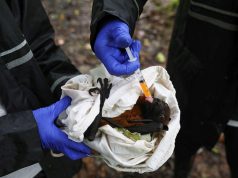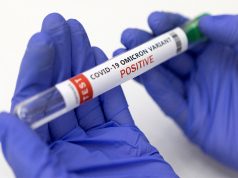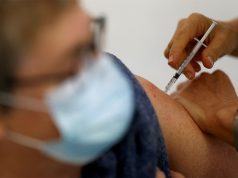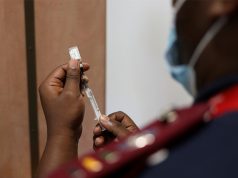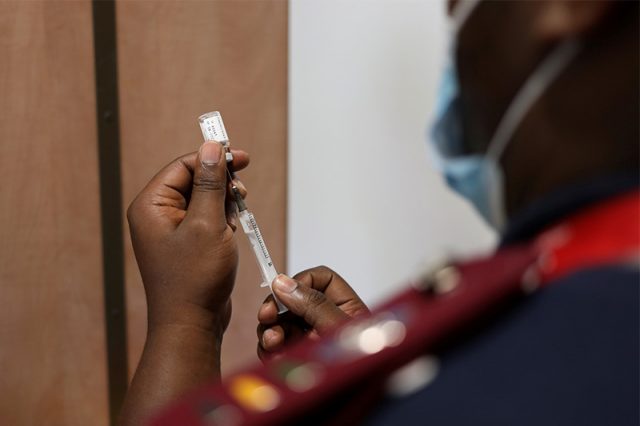
JOHANNESBURG — The new Omicron variant of the coronavirus poses a threefold higher risk of reinfection than the currently dominant Delta variant and the Beta strain, a group of South African health bodies said on Thursday.
The South African Center for Epidemiological Modelling and Analysis (SACEMA) and the National Institute of Communicable Diseases (NICD) said the latest findings “provide epidemiological evidence for Omicron’s ability to evade immunity from prior infection”.
Their statement was issued after a group of South African health organization’s published a paper on medrxiv.org as a pre-print, meaning the work was not yet certified by peer review.
Earlier in the day, microbiologist Anne von Gottberg at NICD had echoed the same views at an online news conference hosted by the World Health Organization, saying South Africa was seeing an increase in COVID-19 reinfections due to Omicron.
South Africa had been seeing a sudden spike in daily reported cases of coronavirus with the government reporting 11,535 new infections on Thursday, up from 312 ten days ago.
The NICD, which alongside a wider network of health organizations does genome sequencing on samples, said on Wednesday the Omicron variant was able to get around some immunity and was fast becoming the dominant variant in the country.
An analysis of routine surveillance data from South Africa from March 2020 till Nov. 27 showed the “reinfection risk profile of Omicron is substantially higher than that associated with the Beta and Delta variants during the second and third waves,” NICD said in the statement on Thursday.
An increase of reinfections rather than new infections would be an indication the new variant has developed the ability to evade natural immunity from previous infection, it said.
Juliet Pulliam, director of SACEMA and the author of the pre-print paper, said in her article that Omicron’s pattern is likely to be established across all provinces of South Africa by early to mid-December, NICD said.
The analysis is based on 2,796,982 individuals with positive test results at least 90 days prior to Nov. 27, out of which 35,670 were suspected reinfections, it added. —Reporting by Promit Mukherjee; Editing by Mark Heinrich and Edmund Blair




